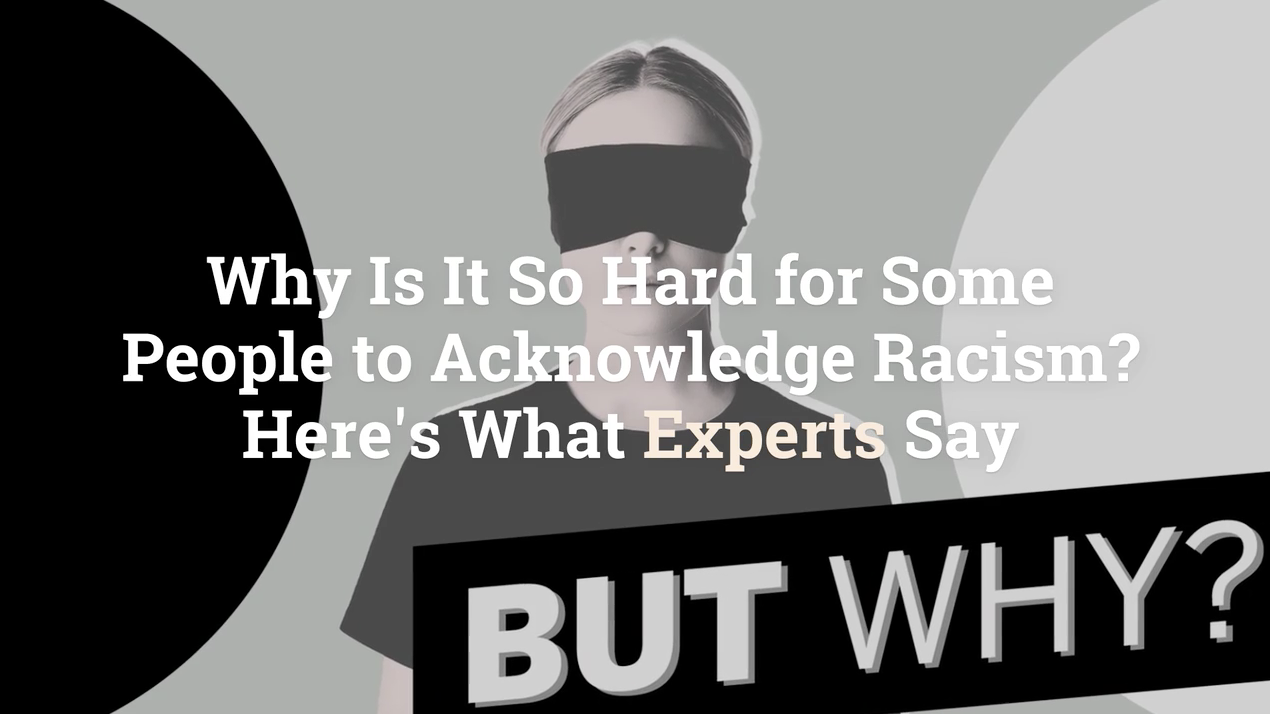Why Is It So Hard for Some People to Acknowledge Racism? Here’s What Experts Say

Americans have been taking part in difficult discussions around race all year, but some people refuse to see that racism is real.
“I will say it’s weird that so many books about “how to stop being racist” were flying off the shelves only for Trump to maintain, and even grow popularity,” tweeted social media user Toyin.
Acknowledging racism can threaten a person’s self-image
There’s a lot to unpack here, so let’s get to it. Bahiyyah Maroon, PhD, an anthropologist and president of the Polis Institute Applied Research Institution focusing on Social Equity & Racial Equality, tells Health that our beliefs aren’t just cultural; they live in the brain. She says the brain contains a “default mode network,” and this is where a person’s identity lives.
Identity doesn’t just mean your ethnic group and gender; it’s also about thinking of yourself as a good, moral, and just person. Most of us want to believe we fit this description…even if we have racist family members or colleagues who tell off-color jokes and whose biases we don’t challenge. It’s no big deal, we tell ourselves, because we’re not racist ourselves.
So let’s say someone who fits this description is told some hard facts: that Black women are more likely to die in childbirth, Black men are almost three times more likely to die at the hands of police, and Black people have just ten cents of wealth for every dollar held by a white person.
You probably think this rational, fact-based approach to a moral issue will convince them to acknowledge the racism underlying these statistics. You think the person is going to hear the facts and “they will make a response based on those facts,” says Maroon. “But they’re not. They are going to make a response based on what they think the story is, and the story is: ‘I, a person telling you about systemic racism, am right, and you, a person who doesn’t understand systemic racism, are wrong.’”
When a person’s beliefs about their own identity are challenged, their neurological system is shaken. “Basically, it’s the same as if you were to punch the person in the face,” says Maroon. This matters, she explains, because when you challenge someone’s belief about themselves and their place in the world, you are “pressing an instinctive response mechanism” of defensiveness. “They are instinctively hardwired, physiologically, to defend their position,” she adds.
A lack of self-awareness can prevent understanding
A 2019 study published in the journal Personality and Individual Differences showed that most prejudiced people did not think they were prejudiced. In other words, some people simply do not understand their own biases.
Morgan Mercer, the founder of Vantage Point, a company using virtual reality to build empathy and ultimately combat social issues like racism, says the inability to grasp the BLM movement boils down to a lack of self-awareness. Some people are simply not willing or able to see how deep the roots of racism go.
She points to slavery, which transformed into Jim Crow laws that continued to oppress Black Americans. Health care, education, criminal justice, voter accessibility, housing, and tax allocation all feed into this systemic racism and the remnants of Jim Crow, says Mercer. “If you’re a white American, or even an Asian-American, you don’t have the experience of growing up in a world where every single system was built upon oppression of your race,” she says. It’s impossible to relate without additional learning—which many people don’t even feel they need to do.
. . .
Keep reading the full post in Health by Jenna Birch.
Learn more about Vantage Point.
11/24/20